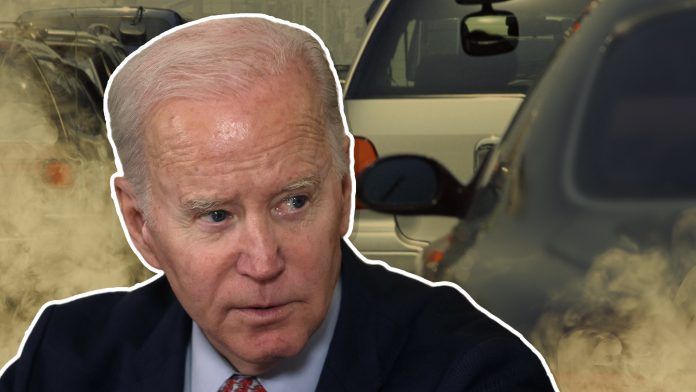The Biden Administration is planning to unveil strict emissions rules in Detroit on April 12.
The new standards, written by the Environmental Protection Agency (EPA), are part of the President’s efforts to address pollution and meet the goals of the Paris Agreement on climate change. While the policies are still under review, they are likely to place never-before-seen restrictions on light vehicle tailpipe emissions such as carbon dioxide and nitrogen oxide, and will apply to cars made from 2027 to 2032.
Despite such laws passing in several states and in Europe, the Biden Administration has not indicated it will ban gas-powered models at any point in the future. Up till now, the President has instead sought to encourage the abandonment of fossil fuels through incentives targeting electric vehicles, such as the $7,500 tax credit, with the goal of replacing 50% of all car sales with EVs by 2030. However, as automakers continue to warn that a full-scale EV transition is impossible without the proper support, the government is seeking to limit greenhouse emissions until enough infrastructure can be built to meet its climate goals.
Alongside the new restrictions, the EPA plans to introduce similar rules for larger vehicles, such as trucks and semis. Both sets of emissions standards will be performance based, restricting pollution on a per-mile basis. Although the agency has refused to offer specifics, it has said the new policies will “support the transition to a zero-emissions transportation future, protecting people and the planet.”



